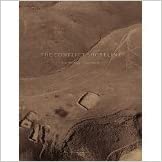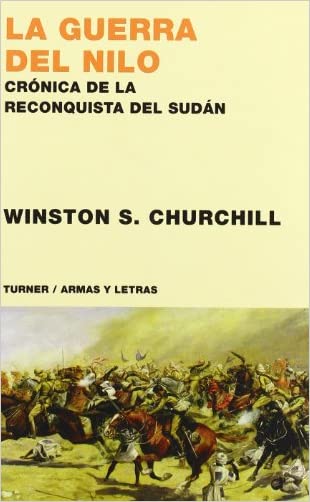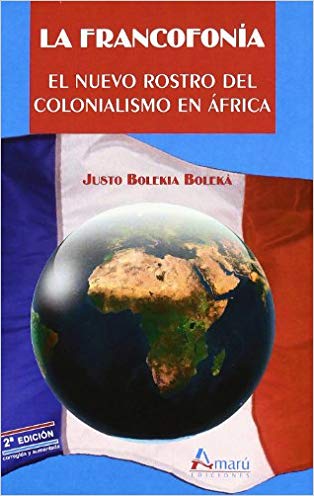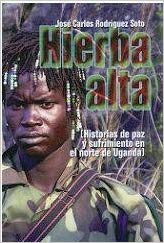PEANUT HOUSE
 This is a story is about a family. It begins when a young son, after his Mother dies is sold to a work farm by his alcoholic Father for a few dollars. The boy is about six years old. He is faced with a harsh upbringing on the work farm, that farms peanuts. He falls in love with a bi-racial girl that is a cook on the farm. He befriends an old black man that oversees the boys on the farm. The old black man finds out where the proprietor is hiding his stash that he is stealing from the home. When they get around 15-16 years old they flee the work farm, after the old black man share's the proprietors cache with them.They come out of hiding, marry and buy a small farm with the stolen money. Naturally, he does what he knows best, farm peanuts. They prosper, continually adding to their property, and become very wealthy. When he gets grown he looks up his little sister and brother and they are reunited, all the while they are fighting the racism and bigotry that is prevalent in the South.
This is a story is about a family. It begins when a young son, after his Mother dies is sold to a work farm by his alcoholic Father for a few dollars. The boy is about six years old. He is faced with a harsh upbringing on the work farm, that farms peanuts. He falls in love with a bi-racial girl that is a cook on the farm. He befriends an old black man that oversees the boys on the farm. The old black man finds out where the proprietor is hiding his stash that he is stealing from the home. When they get around 15-16 years old they flee the work farm, after the old black man share's the proprietors cache with them.They come out of hiding, marry and buy a small farm with the stolen money. Naturally, he does what he knows best, farm peanuts. They prosper, continually adding to their property, and become very wealthy. When he gets grown he looks up his little sister and brother and they are reunited, all the while they are fighting the racism and bigotry that is prevalent in the South.POLICING AFRICA

POST-CONFLICT RECONSTRUCTION AND DEVELOPMENT IN AFRICA

THE CONFLICT SHORELINE: (SHEIKH, FAZAL/ WEIZMAN, EYAL)

AL-MANDARI, EL GRANADINO FUNDADOR DE TETUÁN (GOZÁLBES BUSTO, GUILLERMO)

LA GUERRA DEL NILO . CRÓNICA DE LA RECONQUISTA DE SUDÁN (CHURCHILL, WINSTON)
 Winston Churchill escribió ésta su primera obra histórica en 1899, cuando era un joven teniente y se incorporó a la fuerza anglo-egipicia en la reconquista del Sudán ocupado por los derviches del Mahdi. En forma de narración testimonial, recrea los episod
Winston Churchill escribió ésta su primera obra histórica en 1899, cuando era un joven teniente y se incorporó a la fuerza anglo-egipicia en la reconquista del Sudán ocupado por los derviches del Mahdi. En forma de narración testimonial, recrea los episodPLIEGUES DE LA MEMORIA . AL-SADEQ AL-MAHDI = TADHÂRIS AL-DÂKIRA : AL-SÂDIQ AL-MAHDÎ (ORTEGA RODRIGO, RAFAEL / VÁZQUEZ MARTÍ, ROCÍO)

GOLA FOREST CHILD (KOROMA, JOPHAKAR AMAH)
 The Gola Forest covers a vast area of the eastern part of Sierra Leone, starting from the Malema, Gaura, Nomo, Tunkia and Makpeli chiefdoms and stretching on to the Moro River that forms the international border between Sierra Leone and Liberia. The Gola Forest has many of the largest animals and fauna? and it was in that region where I was born, raised to enjoy the conviviality of the natural environment.As children, we were left to grow and adventure many things. Sometimes we roamed for hours in the jungle of the Gola Forest, discovering things under the coolness of the trees which were responsible for creating a type of jungle air conditioning, until the parents decided that it was time learn a trade, Qur?an madrassa or attend other schools which were usually too far away in different areas.This haunting, hilarious, memorable narrative of my childhood enriched my life at primary and secondary schools, from the jungle village on the back waters of the Eastern Province in Sierra Leone.
The Gola Forest covers a vast area of the eastern part of Sierra Leone, starting from the Malema, Gaura, Nomo, Tunkia and Makpeli chiefdoms and stretching on to the Moro River that forms the international border between Sierra Leone and Liberia. The Gola Forest has many of the largest animals and fauna? and it was in that region where I was born, raised to enjoy the conviviality of the natural environment.As children, we were left to grow and adventure many things. Sometimes we roamed for hours in the jungle of the Gola Forest, discovering things under the coolness of the trees which were responsible for creating a type of jungle air conditioning, until the parents decided that it was time learn a trade, Qur?an madrassa or attend other schools which were usually too far away in different areas.This haunting, hilarious, memorable narrative of my childhood enriched my life at primary and secondary schools, from the jungle village on the back waters of the Eastern Province in Sierra Leone.LA FRANCOFONÍA . EL NUEVO ROSTRO DEL COLONIALISMO EN ÁFRICA (BOLEKIA BOLEKÁ, JUSTO)

HIERBA ALTA . HISTORIA DE PAZ Y SUFRIMIENTO EN EL NORTE DE UGANDA (RODRÍGUEZ SOTO, JOSÉ CARLOS)

CARTA A ISIDORE . TESTIMONIO DE LA GUERRA CIVIL EN BURUNDI (NSHIMIRIMANA, PERPETUA)
 Isidore Mugabonihera fue asesinado por el ejército burundés un día de octubre de 1965. A su familia se le prohibió guardar el luto, no lo pudieron enterrar, ni siquiera vieron su cuerpo. El hecho de no haber tocado este cuerpo, hizo aparecer una terrible duda: ¿Isidore estaba realmente muerto o no? Fueron necesarias muchas pesquisas y doce años para obtener una respuesta definitiva a esta pregunta.«He escrito esta Carta a Isidore, para colmar un vacío: hablar con él tanto como quisiera, porque esto me había sido prohibido. He querido contarle todo lo que pasó en Burundi durante estos doce años en que su suerte no había sido aún fijada definitivamente. He escrito porque quería dar testimonio del curso de mi vida después de la desaparición brutal de este ser querido. Espero que todos aquellos que vieron desaparecer trágicamente a los suyos en 1965, sin darles la menor explicación, puedan a su vez dar testimonio.»
Isidore Mugabonihera fue asesinado por el ejército burundés un día de octubre de 1965. A su familia se le prohibió guardar el luto, no lo pudieron enterrar, ni siquiera vieron su cuerpo. El hecho de no haber tocado este cuerpo, hizo aparecer una terrible duda: ¿Isidore estaba realmente muerto o no? Fueron necesarias muchas pesquisas y doce años para obtener una respuesta definitiva a esta pregunta.«He escrito esta Carta a Isidore, para colmar un vacío: hablar con él tanto como quisiera, porque esto me había sido prohibido. He querido contarle todo lo que pasó en Burundi durante estos doce años en que su suerte no había sido aún fijada definitivamente. He escrito porque quería dar testimonio del curso de mi vida después de la desaparición brutal de este ser querido. Espero que todos aquellos que vieron desaparecer trágicamente a los suyos en 1965, sin darles la menor explicación, puedan a su vez dar testimonio.»VOLAR DE NOCHE . UN VIAJE AL CORAZÓN DEL EMIGRANTE (ZÁRATE BRAVO DE LAGUNA, FRANCISCO DE)

THE AFRICAN UNION (2N ED.) (A.A.V.V.)

BRIDGE OVER BLOW RIVER (NORMAN, KAJSA)

EL CONFLICTO DEL SAHARA OCCIDENTAL, REFLEJO DE LAS CONTRADICCIONES Y CARENCIAS DEL DERECHO INTERNACIONAL (SOROETA LICERAS, JUAN)
 Ha transcurrido más de un cuarto de siglo desde que el Sahara Occidental fuera ocupado militarmente por Marruecos en evidente violación del Derecho Internacional, como las Naciones Unidas han denunciado. Si bien los intereses estratégicos de algunas potencias están del lado del país ocupante, el Derecho Internacional está del lado saharaui. Este libro analiza el proceso que apartó al pueblo saharaui de la senda seguida por la mayoría de los pueblos sometidos a la colonización europea, la autodeterminación, mirando no sólo hacia el pasado, sino también a los problemas actuales y al futuro desenlace del conflicto.
Ha transcurrido más de un cuarto de siglo desde que el Sahara Occidental fuera ocupado militarmente por Marruecos en evidente violación del Derecho Internacional, como las Naciones Unidas han denunciado. Si bien los intereses estratégicos de algunas potencias están del lado del país ocupante, el Derecho Internacional está del lado saharaui. Este libro analiza el proceso que apartó al pueblo saharaui de la senda seguida por la mayoría de los pueblos sometidos a la colonización europea, la autodeterminación, mirando no sólo hacia el pasado, sino también a los problemas actuales y al futuro desenlace del conflicto.